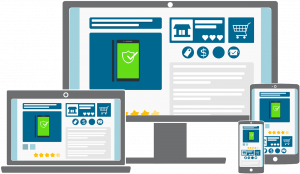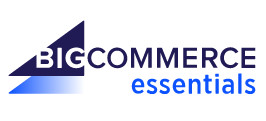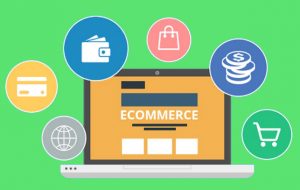Disclosure: Privacy Australia is community-supported. We may earn a commission when you buy a VPN through one of our links. Learn more.
Best eCommerce Platforms in Australia

Choosing an eCommerce website for your business is not as easy as some websites might make it seem. There is so much to consider and, if you’re barely starting out, you’ll need all the cost cuts you can get.
Some platforms come packed with all the things you need, while others require you to add integrations to create a fully functional website.
Because there are so many on the web to choose from, we took a look and narrowed down a list of the best 6 eCommerce platforms on the web.
Below, you’ll find out about all their key features and more, using the info to help you decide whether they are the platform for you or not.
Table of Contents:
- What is an eCommerce Platform
- 6 of the Best eCommerce Platforms
- Things to Consider when Choosing your Perfect Platform
- Takeaway
What is an eCommerce Platform? 🖥️
When companies want to add a product to sell on the web, they need an eCommerce platform. eCommerce platforms are a type of all-inclusive software that allows sellers to sell and buyers to buy. Using integrated tools for design and more, companies can set up their website so customers can come and browse products, shop and add products to their cart, and checkout.
For businesses that are looking to sell their products, they need a website that their customers will love to look at and, at the same time, doesn’t break the bank. A few of the key elements you’ll find among the best eCommerce platforms include:
- Web hosting
- Web designing tools
- A payment system
- A domain name
- Technical support
While there are a ton of other features offered by the best eCommerce websites out there, the 5 we mentioned above are the most fundamental. They will help you make a seamless experience for your buyers while ensuring you can manage your website, inventory, and sales.
Best eCommerce Platforms 🔝️
To find the best eCommerce websites on the web, we had to dig for those with key features to suit both companies and customers. You’ll find key features, pros and cons, and a bit of insight into all of those that made our list, using it to get closer to finding the perfect eCommerce platform for you.
1. Shopify – Our #1 Pick for Best eCommerce Platform
Perfect for: Businesses with a lot of inventory and turnover
Pricing: From $29 up to $299
Key Features:
- Find free themes to choose from
- Bump up your site with paid themes
- Enjoy simple payment processing
- Find room to grow with Shopify
- Solid technical support team

Pros
- Easy to use
- Solid 24/7 customer care
- Tons of themes to choose from
- More than 1,200 plug-ins and apps to add it
- Highly customizable
Cons
- More on the expensive side
For those that want to enjoy the ease of having all the necessary tools in one place, Shopify is your place. They offer hosting website building, and even payment processing, along with another suite of features perfect for setting up a one-stop-shop online.
They offer their own built-in payment processor, though their plans tend to fall just above the average when compared to other top eCommerce platforms. Still, users that choose even the most basic platform can enjoy payment plans, customizing their subscription any way that they would like.
Users will find pages of themes to choose from, finding the one that represents their company and product the most. Plus, even without coding experience, rookie web designers can create a pretty cool setup that’s filled with character, taking their eCommerce website to a whole new level.
2. Wix – Top eCommerce Features on the Web
Perfect for: Those without coding skills + businesses of all sizes
Pricing: Free options + Plans starting from $20, ranging to $80 per month
Key Features:
- Free domain names
- SEO tools
- Performance tracker
- Logo maker

Pros
- High speeds
- Lots of templates to choose from
- Drag and drop interface
- Tons of apps to choose from
Cons
- Non-interchangeable templates
- Free options require Wix branding
If you’re looking for a website that has a lot to offer without breaking the bank, Wix, is the one for you. Their base plans come with a long list of eCommerce features, most of them catering to business owners of all sizes. Payment plans are abundant and there are options to pay much less when you bundle up.
With Wix, business owners can choose to accept a ton of payment options, some of which include Stripe, PayPal, and eWay. Integrating apps and features into eCommerce websites is simple, even for those that don’t have much coding experience under their belt.
The designing part is simple and set up to help users create the website they want without all of the hassles. Users can choose from a long list of templates, browsing by category to find the one that represents them the most.
The only downside we found with Wix is that it doesn’t transfer between platforms well, so whatever you make with Wix, will stay with Wix, leaving you to start over if you ever decide to take another direction with your current website.
3. Weebly – Best Pricing Plans for eCommerce Platforms
Perfect for: Anyone who needs a short-term eCommerce website that offers drag and drops designing
Pricing: From free versions all the way up to $95 per month
Key Features:
- Responsive templates
- Domain registration
- Drag and drop builder
- Simple setup

Pros
- Easy to use
- Lots of integrations
- Auto-save while building (it’s a lifesaver!)
- Super affordable
- Online security and safety features
Cons
- Not all formatting is customizable
- Some features may require a bit of coding
Weebly is one on our list that has a free option for eCommerce sites. To start building, all users will have to do is create an account, choose a template, and get to work on the customization adding their own flare to their website.
With Weebly, users can choose from more than 400 integrations, including social media platforms like Facebook and Pinterest. Adding them in is a breeze, with a simple drag and drop option that offers companies an easy way to design their website without the need to have prior coding experience.
They offer payment options with Square and PayPal, two of the most used online payment platforms on the web. In that way, companies of all sizes won’t have to worry about building their website from scratch, using a simple way that can have their eCommerce websites up and running in little to no time at all.
4. Squarespace – Best for Exclusive eCommerce Features
Perfect for: Businesses looking to make an eye-catching website
Pricing: Subscriptions range from $25 to $61 per month
Key Features:
- Customizable templates
- Design tools
- Customer redirects
- Product image zoom
- Inventory manager

Pros
- Tons of templates to choose from
- Mobile apps
- Access to live support around the clock
- Powerful eCommerce tools
Cons
- The platform could take a bit of getting used to
Another option for an eCommerce platform is Squarespace, which comes with a suite of features that creators of all levels can get used to. They have exclusive design tools that allow users to add special touches here and there and photo tools perfect for any product.
Companies can make use of their inventory manager, product image zoom, and more, create a seamless user experience that’s sure to get you much more traffic. Plus, with Squarespace, companies of all sizes will have access to top marketing tools, using them as a way to extend their reaches across the web. All of this and more are available for a 14-day free trial, something that all users should take advantage of to see if Squarespace is a good fit.
From designing the website to selling products, users can rest assured that a knowledgeable agent will be there to assist if anything goes wrong. From technical support to getting to the bottom of issues holding up uptime, users can find someone 24/7.
5. BigCommerce – Perfect eCommerce Platform for Businesses of all Sizes
Perfect for: Businesses with a large following or that plan to have one soon + those with a bit of a technical background
Pricing: Subscriptions start from $29.95 to $299.95 per month
Key Features:
- Great uptime guarantee
- Persistent Cart
- Bulk pricing
- Single-page checkout
- Product videos

Pros
- Great reporting tools
- No transaction fees
- Built-in product review
- Abandoned cart saver and persistent cart (increase sales!)
- Built-in cookie consent
Cons
- Packages are more expensive than other platforms out there
- Limits on annual sales
Businesses both large and small can find all that they are looking for and more with BigCommerce. They are 100% scalable, something that you typically won’t find with other platforms on the web. Businesses can start off with a more basic plan, climbing the ladder as they get more and more sales and traffic.
When it comes to creating a website, companies won’t have to reach for anything complicated, simply choosing a template and getting creative. One thing about design is that it does take some getting used to, especially when it comes to adding in integrations and other features.
While their basic subscriptions come with plenty for most businesses, their tiered subscriptions keep taking things up a notch, with advanced features like persistent cart, cart abandonment, and more. Standard plans cap off at $50,000 per year in annual sales, moving up to more than $400,000 for the more advanced and feature-packed plans.
6. WooCommerce – Best Low-Cost eCommerce Platform
Perfect for: Businesses of all sizes looking to create an eCommerce website fast
Pricing: Plans start from $10 and go up to $99 per month
Key Features:
- Open-source tools for development
- Endless extensions
- Highly customizable
- Built-in payment processing
- Lots of marketing tools

Pros
- Highly flexible
- Tons of custom optimizations
- Great security features
- More than 4 million users
Cons
- WordPress specific
- Costs can add up
There are lots of individuals and companies out there that prefer WordPress, ranking it as one of the number one website builders around. That’s both an advantage and disadvantage that comes with using WooCommerce, as some prefer it while others do not.
If you do like WordPress, then you’re in luck, able to get the best of both worlds when you decide to create your eCommerce website with WooCommerce. For businesses with a lot of products in their inventory, they will love that WooCommerce offers unlimited products and orders, not limiting their potential success.
The one area where WooCommerce might not be so good for businesses is when it comes to added integrations and features. All of these can be added, though they come with fees to do so. Though it’s worth it to have, it might not be the most cost-effective plan, especially if you’re on a budget.
Things to Consider when Choosing your Perfect Platform 📑️

Now that you’ve made it through our list of the best 6 eCommerce platforms on the web, we’d like to share a bit about key things to consider when choosing your platform.
If you’re barely starting out, there are some key elements that you should be aware of, knowing what you want and where to get it so that you get the perfect fit.
Your eCommerce Needs
Just like with any product out there, you should first determine your needs before choosing a platform. Think about key things like where your business is and where you would like it to go. What do you want out of your website and what kinds of experience would you like?
It could help to take yourself out of your shoes and step into those of a customer, thinking about all the key things you love while shopping online. Consider where things like integrations, technical support, catalog management, security, performance, scalability, and mobile compatibility are on your list and rank them, using that as a place to start when searching for key features in your eCommerce platform.
Your Budget 💰️
No matter what stage your business is at, you’ll likely have a budget. You might have money to spend but, is it worth spending on an eCommerce platform? If you’re not sure, consider how much is doable and use that to narrow down your choices of eCommerce platforms. When creating your budget for your eCommerce platform, be sure to consider:
- The cost of the platform
- Designing costs
- Maintenance fees
- Transaction fees
- Hosting costs
While some platforms might throw them all together, others don’t and will charge for every little thing. To make sure that you can afford the platform you need, make sure you think about all costs and tweak your choices from there.
Payment Options 💳️
Another way that eCommerce platforms separate themselves from one another is with their available payment options. If you choose a reputable platform, you’re likely to have access to all forms of payment methods. Others, on the other hand, do not provide a variety when it comes to payment methods, tacking on fees when buyers use them to purchase your products.
As a seller, the last thing you want to do is limit your shoppers to their options, as that could result in loss of sales. Instead, choose platforms that offer a wide range and won’t charge you transaction fees when your users decide to use them. Look for those with wide acceptance and, if you have to go with one that charges, make sure that they’re not going overboard.
Designing Tools
Once you get a lot of the technical stuff out of the way, it’s time to start thinking about your design. This is the part that is intimidating to most companies, as web design might not be their forte. That’s why it pays to choose an eCommerce platform that provides designing tools, allowing businesses to create professional-grade websites without having to spend a lot of time and a fortune to do so.
Some of the top designing tools come with templates for quick set up, drag and drop options where anyone can create a highly customized website in no time, and integrations to make their eCommerce store create a seamless experience from start to checkout.
Features
The design is critical but, something that ranks a bit higher on the list is the features. They and the design sort of go together, as the features make things flow and allow businesses to create their selling experience any way they’d like. Some features to look out for include:
SEO Friendliness
In the competitive landscape of online business, the higher a company ranks on search engines, the greater its chances of driving sales. As a result, the incorporation of search engine optimization features has become indispensable for businesses of all sizes. This holds true for both small enterprises and larger corporations.
To support their SEO efforts, many top eCommerce sites provide a range of SEO tools. These tools are designed to generate SEO-friendly content and automatically distribute it across associated social media platforms. By leveraging these capabilities, businesses can enhance their online visibility, attract a wider audience, and ultimately increase their potential for sales.
Cart Tools 🛒️
It is said that, with help from automated cart tools and reminders, businesses have sold more. Tools include abandoned cart features that send notifications to shoppers reminding them they have items. Some eCommerce platforms also will send a promotional email, giving shoppers more incentive to come back and buy.
Product Presentations
Another feature to keep your eyes peeled for is product presentations, which are there to provide the most interactive shopping experience possible on the web. These include click to zoom features and product videos, giving businesses the chance to showcase their products better, and in turn, sell more.
Consider splurging a bit here, giving your products the best representation so that you can sell more and earn more traffic to your website over time.
Security 🔒️
The web can be a dangerous space, especially for those who are surfing without proper protection. Even if shoppers are coming to you via a secure browser or with a VPN, you’ll still need to add your own protections to keep your website safe. A few key things to check for include SSL certifications and access to advanced security like automated monitoring.
Because you’ll be taking payments, make sure that the website is PCI-compliant, avoiding any fees or penalties that can come along if you’re not.
Scalability
If you’re a business that’s just starting out, you’re not sure where your journey will take you. That’s why scalability can be a powerful tool, one that will allow you to grow as your company does. The best eCommerce websites will make it easy to scale up or down, depending on how things go. Key things to look at are storage and additional advanced features, making sure you can deactivate or decrease them alongside your website.
Technical Support 📠️
Last but not least, one key element that you need from your eCommerce platform is technical support. A lot can go wrong on the web, including your website crashing. If that is to happen, you want to know that someone from your platform is there to help, getting you back online quickly.
It’s not just about the disaster, but also about knowing that any question or concern can be attended to when you need it. Plus, if you’re a newbie to web design, it helps to know that someone will be there to help out if you get lost or stuck.
Takeaway 💡️

These days, all companies need a spot on the web. More and more customers are purchasing products online, creating a need for a seamless web experience for businesses that have products to sell.
When on the hunt for an eCommerce platform for your business, be sure to remember our things to consider and start by defining your business as well as your goals, both long and short-term.
Once you know your direction, you can take steps to make sure that you get there with the right eCommerce platform. You can create a beautiful website, add advanced integrations, and give customers an experience that they can’t wait to get back to.
You Might Also Like:



